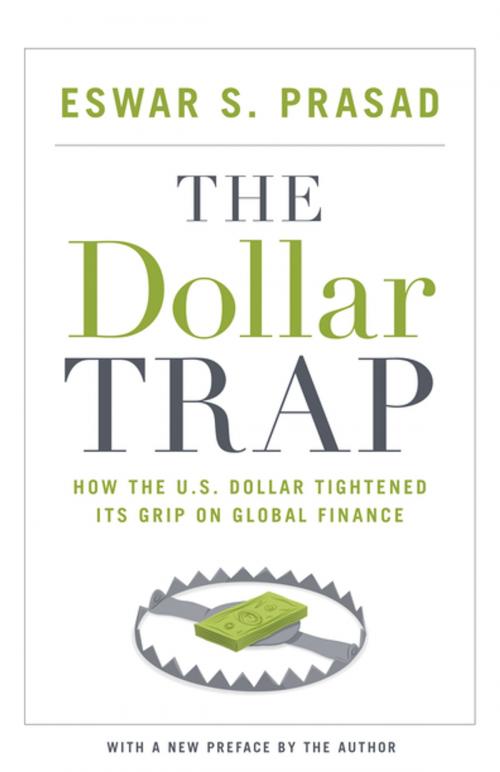The Dollar Trap
How the U.S. Dollar Tightened Its Grip on Global Finance
Business & Finance, Economics, International Economics, Economic Conditions| Author: | Eswar S. Prasad | ISBN: | 9781400873647 |
| Publisher: | Princeton University Press | Publication: | August 25, 2015 |
| Imprint: | Princeton University Press | Language: | English |
| Author: | Eswar S. Prasad |
| ISBN: | 9781400873647 |
| Publisher: | Princeton University Press |
| Publication: | August 25, 2015 |
| Imprint: | Princeton University Press |
| Language: | English |
The U.S. dollar's dominance seems under threat. The near collapse of the U.S. financial system in 2008–2009, political paralysis that has blocked effective policymaking, and emerging competitors such as the Chinese renminbi have heightened speculation about the dollar’s looming displacement as the main reserve currency. Yet, as The Dollar Trap powerfully argues, the financial crisis, a dysfunctional international monetary system, and U.S. policies have paradoxically strengthened the dollar’s importance.
Eswar Prasad examines how the dollar came to have a central role in the world economy and demonstrates that it will remain the cornerstone of global finance for the foreseeable future. Marshaling a range of arguments and data, and drawing on the latest research, Prasad shows why it will be difficult to dislodge the dollar-centric system. With vast amounts of foreign financial capital locked up in dollar assets, including U.S. government securities, other countries now have a strong incentive to prevent a dollar crash.
Prasad takes the reader through key contemporary issues in international finance—including the growing economic influence of emerging markets, the currency wars, the complexities of the China-U.S. relationship, and the role of institutions like the International Monetary Fund—and offers new ideas for fixing the flawed monetary system. Readers are also given a rare look into some of the intrigue and backdoor scheming in the corridors of international finance.
The Dollar Trap offers a panoramic analysis of the fragile state of global finance and makes a compelling case that, despite all its flaws, the dollar will remain the ultimate safe-haven currency.
The U.S. dollar's dominance seems under threat. The near collapse of the U.S. financial system in 2008–2009, political paralysis that has blocked effective policymaking, and emerging competitors such as the Chinese renminbi have heightened speculation about the dollar’s looming displacement as the main reserve currency. Yet, as The Dollar Trap powerfully argues, the financial crisis, a dysfunctional international monetary system, and U.S. policies have paradoxically strengthened the dollar’s importance.
Eswar Prasad examines how the dollar came to have a central role in the world economy and demonstrates that it will remain the cornerstone of global finance for the foreseeable future. Marshaling a range of arguments and data, and drawing on the latest research, Prasad shows why it will be difficult to dislodge the dollar-centric system. With vast amounts of foreign financial capital locked up in dollar assets, including U.S. government securities, other countries now have a strong incentive to prevent a dollar crash.
Prasad takes the reader through key contemporary issues in international finance—including the growing economic influence of emerging markets, the currency wars, the complexities of the China-U.S. relationship, and the role of institutions like the International Monetary Fund—and offers new ideas for fixing the flawed monetary system. Readers are also given a rare look into some of the intrigue and backdoor scheming in the corridors of international finance.
The Dollar Trap offers a panoramic analysis of the fragile state of global finance and makes a compelling case that, despite all its flaws, the dollar will remain the ultimate safe-haven currency.















